
Will Varner / BuzzFeed
My mother texts me “Call me right away.” I see her message and I know something bad has happened because this is the language of tragedy — all vague, no specifics. This is a habit of hers, with bad news. Such a habit that my sisters and I tease her about it.
This is the language of tragedy — all vague, no specifics.
The first time she had bad news, the first time I remember, was when she told us about the divorce. My sisters and I were in our bedroom — things had gotten bad that summer, though no one in our family was willing to say it. Things had gotten bad enough that my oldest sister insisted we sleep in one room all together. It was a four-bedroom house, enough space for each of us to have her own room, but my sister said, “We should be together” and things were so bad, my mother did not protest or question it. She just agreed.
That first time she had bad news, I remember her turning off the TV in our shared bedroom so she could talk to us. The Boy in the Plastic Bubble was playing, a corny movie that we loved to make fun of. She asked us to turn it off and then she said the divorce was coming and we would have to leave the house with space enough for all of us: We were moving to our grandparents' where there was very little space for anyone.
I call my mother back.
“Yes,” I say, breathless, “What is it?”
As is her way of edging around bad news, she says, “You’re the first person I’ve called, and I’ve wanted you to know, you should prepare yourself, I just want you to know—”
“Just tell me what it is,” I say.
And she says, “Your father died last night.”
It is an assumption of fatherless children that you must long for your missing parent. That you must ache for them or yearn for them and carry on conversations with their ghosts. I carried on conversations with him, this is true, but they have always been: You are awful, you are nothing, we will show you what you’ve done, what you’ve lost, what you’ve tried to destroy. You don’t even know what wrong you’ve done.
When my mother told us they were getting divorced, I only remember feeling a great sigh of relief. Finally, I remember thinking, My real family is here. The one I was supposed to have. The rest of it — the loss of all the money, and all the friends, and all the social standing, the years and years of court hearings — I didn’t know yet that was coming. I only knew that finally the calculus of life was working out to something recognizable, to what it should have been all along: my mother, my two older sisters, and me.
The whole world's a graveyard for somebody.
That summer of the divorce, my middle sister told me all about how the world would end. She’d caught me holding my breath as we drove past graveyards — before the divorce, that house with enough bedrooms for all was on Massachusetts Avenue in Boston, on the Arlington/Lexington border and walking distance from Revolutionary War battlegrounds and colonial cemeteries with their headstones worn wafer thin. My sister said that it was a rule; you should always hold your breath around the dead. So it was a shock, a cruel shock, when she mocked me for following it. “If you are that superstitious,” she said, “You should hold your breath all the time. You should never take a breath again because the whole world’s a graveyard for somebody.”
As an adult, the fear of the end hasn’t left me, only grown stronger. And I have come to learn that worlds are always ending, that most people’s lives are full of small-scale apocalypses. In my more melodramatic moments, it seems that any moment of happiness is immediately met with a threat of annihilation.

When I hear my father has died, I get a tremendous craving for mushrooms. It only hits me a few hours later how wrong this is — my mother is violently allergic to mushrooms. She fervently recites her near-death experiences with them, always after someone has merely sliced one or cooked one in her presence. She discovered her allergy toward the end of her marriage, during that terrible summer when things were going really bad. This was also a time of my mother’s increasing invincibility. She ate mushrooms and her face swelled up and she said she almost died but she didn’t, she lived. A few weeks later, unable to afford a babysitter for me, she took me to work with her at a group home for the severely autistic. I watched one of her charges punch her in the face and break her nose and I remember I never saw her cry once. As a child, I think I was too shocked to realize either of those encounters as potentially deadly. But here I am an adult, hearing of my father's death and craving my mother's poison.
But here I am an adult, hearing of my father’s death and craving my mother’s poison.
I listen to the specifics of his death. He died alone, 14 months after he tried to call all of us to his bedside. Promising death was a bluff he played throughout my childhood. I can remember in middle school, my mother telling me, gravely, “Your father has lung cancer and will be dead within the year,” but he muddled on for another decade and more, always claiming to be dying and always using this as a way to call us back to him. It didn’t work. After the age of 7, I never spoke to my father in person again.
My mother says he died alone, late at night, close to morning. My mother says his lawyer told her. My mother says it’s real this time. And all I want is mushrooms to eat.
That final summer when things were really bad, our last Father’s Day with him, we went out for ice cream to celebrate. We went to a fancy, old-timey ice cream parlor, and in their front window was a display of chocolates. There was one chocolate bar that spelled out the word "Dad." I wanted it, but only to eat the chocolate. Being conniving, I saw a way to make my want selfless. I told my mother I wanted to give it to my father for Father's Day — which was strange in and of itself, because we didn't celebrate that, as far as I can remember. We never gave him presents, not like we did for my mother — for Mother's Day, my sisters and I made elaborate menus for her, unfamiliar delicacies like Red Velvet Cake and fusilli pasta.
My mother bought the candy and later that night I gave it to him. I remember him looking at it for a long time. I remember he didn't open the box, or offer me a piece, as I had been hoping. He left the bar in its plastic case and put it on the stand in our front hall, where any visitor to our home could see it. Later that night, I snuck downstairs and opened the box and took what I was certain was a discreet bite out of the bar. I thought you wouldn't be able to see my teeth marks, but he saw. The next morning, he called me over to the hallstand. He waited 'til the whole family was awake.
"Katie ate my present," he said. He was laughing and my mother was laughing, maybe my sisters, too. He took the bar out of its box. "I bet she can eat the whole thing," he said. And then he put it back on the stand and walked away.
It was a challenge and I accepted it. I took it off the stand and I ate and ate and ate even though my mother said, "You'll make yourself sick."
When I was finished, he said, disgusted and proud, "I didn't think you could really do it."

The summer of the divorce, the summer of the end, he had lost his job and we had no money for groceries. He insisted we couldn't truly be hungry because there were condiments in the house. "This isn't real hunger," he said. He made mustard sandwiches, which my sisters refused to eat. But I ate them with him — French's mustard on oatmeal bread. Even after the divorce, for years, mustard sandwiches were the only kind of sandwiches I would eat — my mother got the deli down the block to make them for me special.
My father ate many strange things — this is what he was known for. He was a burly, imposing man, a former football player, with the delicate stomach of a colicky baby. A few years before I was born, he was hospitalized for tumors on his lungs. The first I heard of it was as a joke — your father was in the hospital for months and he was ordered to lose weight, in order to get better faster, but he talked everyone he knew into smuggling him in submarine sandwiches anyways.

I am standing in my father’s church, a building I have never been to, and I am listening to his pastor deliver his eulogy. She says, “He loved to eat those bags of Lay's with a bottle of hot sauce dumped inside,” and I think, My god, he was still doing that? She says, “He kept eating even though it wasn’t good for him. He was stubborn. He had to have his Popeyes,” and I think, My god, he was still doing that? And then I think, Why is his eulogy about what he ate? Why can’t she talk about all the rest? And I remember the conversations I had with him in my head as a child, that I continued to have with him up until I heard he died: You are an awful person who spreads destruction and sadness. How could you do this to us? Don’t you know what you’ve ended?
In the weeks after his funeral, it becomes very clear how hard it is to explain the death of a parent like that. Well-meaning friends say things like, “You’ll feel it, it will come.”
Or, “You may think you didn’t love him now, but it will change.”
How do you explain the death of a person who was both there and not there; of a person whom you were not particularly close to but has affected nearly every aspect of your early life? Of a person you have spent over 20 years alternately hating and feeling a cold indifference to? How do you make up a eulogy for someone like that?
How do you explain the death of a person who was both there and not there?
I can’t. At first I make jokes. At least, I think they are jokes. “I’m sorry to hear about your dad,” someone will say and I’ll smile and say back, “Eh, it’s OK, he was a pretty terrible person.” But no one ever laughs at that — they mostly wince.
Eventually, I don’t say anything back. Instead, I eat. I don’t realize what I’m doing, that I’ve embarked on a sort of self-destructive tribute to him and his oddly fragile stomach. But I do. I eat all the strange pairings of poverty that he used to love — the snacks you invent when you go to a bodega with only three dollars in your pocket, the food you make up when there’s only flour and cocoa powder and Crisco in the pantry. In the five months after my father’s death, I gain 40 pounds that I cannot even feel on my body.
I'm not feeling anything at all but I am thinking again and again about how I am supposed to remember him. After my parent’s divorce, the hardest part was explaining it all to other people. What was there to say? All of it, all the details of it, beggared belief. Or worse than disbelief, the details frightened people. “My family’s messed up,” was the perennial point of bragging in adolescence and early adulthood. But there is the kind of quirky messed up one finds in a gentle, indie dramedy and the kind of messed up that makes others respond with a long, pained silence. I have heard that silence many, many times in my life. When I was younger, a small, sick part of me relished it. I eat my dinners of corner store cheddar and salami, Reddi-Wip and dollar bags of popcorn, and spend those months trying not to talk about my father.
I have what my father had, that tyrannically weak stomach. My sisters have it, too. “Abdominal migraines,” my sister tells me. “They are migraines in your stomach. Usually only babies get them. Babies and very neurotic adults.” When I finally am able to go to a doctor, she weighs me and I am forced to acknowledge my 40-pound gain. She says, “Family history?” and I tell her everything. She listens with interest — at one point she asks a question; “Not like it matters,” she qualifies, “I’m just fascinated” — and then she tells me there’s very little she can do for me, except recommend the obvious — lose weight and stop eating like an impoverished teenager who just got her WIC benefits for the month. For a little while, I can’t eat anything fatty without my insides feeling as though they are bathed in acid, without my throat filling up with sour sick.
I leave the doctor’s office and I buy a big bag of rice, a big bag of spinach, and a big bag of kale. The kale is hard to find: It sells out fast in Brooklyn. But when I was a kid, kale was the vegetable of our impoverishment: the cheapest green to buy with the most vitamins and the one you could, with a little pantry magic and a lot of Worcestershire sauce, make taste like a good cut of steak. I hated it when I was a kid but learned to love it in college when I was paying for my own groceries and now I fight for it with people who don’t know how to cook it, every grocery day morning.
I am in luck, the kale is there, and I walk home (no more bus rides right now) and put my meal on the stove and sit in my garden and look up at the sky and listen for the pot to boil over.
I imagine all these other universes where another, better version of me lived with her family, and it’s that that I yearn and mourn for. Not the actual father, but the myth of one. Not reality but the one faintly wished for.
***
Kaitlyn Greenidge is originally from Boston. A graduate of Hunter College's MFA Fiction program, she currently lives in Brooklyn. She has received scholarships to Bread Loaf Writers' Conference and is a 2016 NEA fellow in Literature. Her work has appeared in American Short Fiction, Virginia Quarterly Review, Kweli Journal, The Believer, Guernica, Salon.com, and other places. Her debut novel is We Love You, Charlie Freeman (Algonquin Books).
To learn more about We Love You, Charlie Freeman, click here.

Algonquin Books


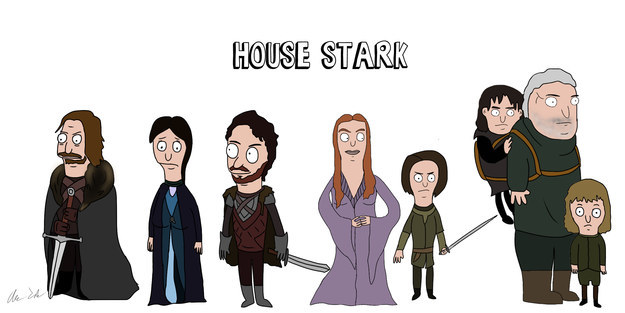
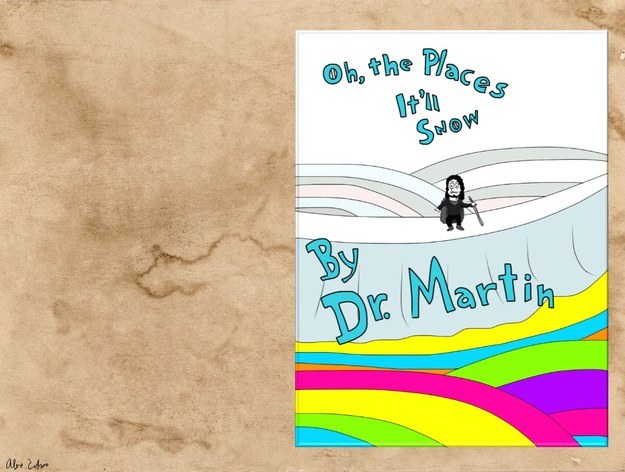
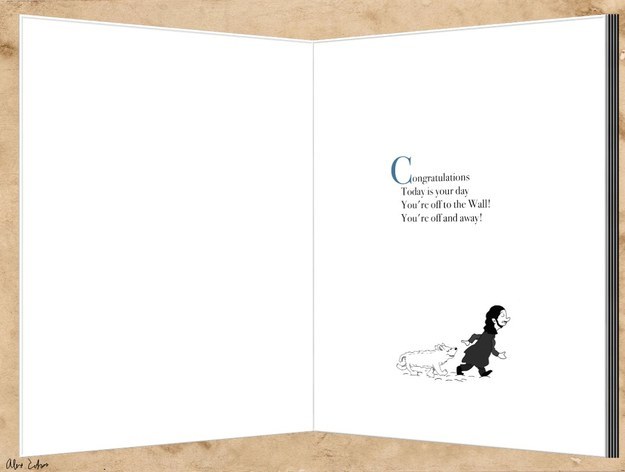
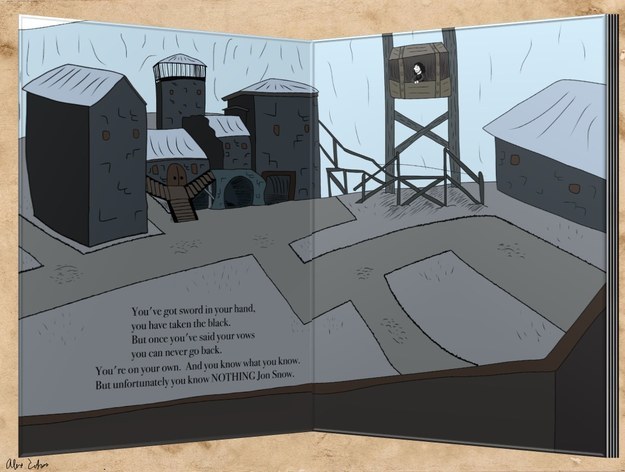







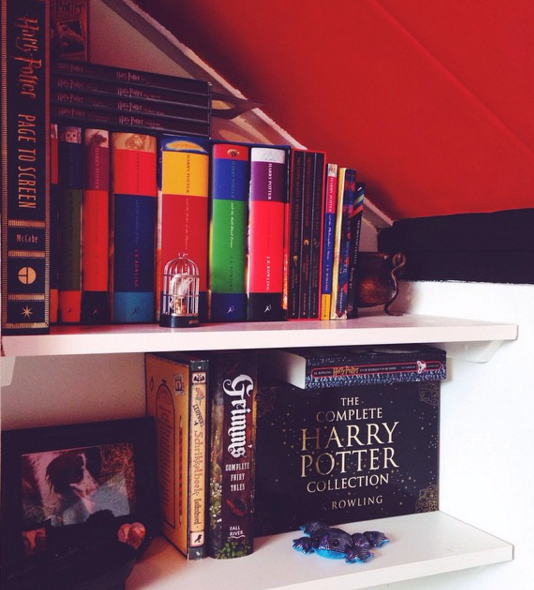
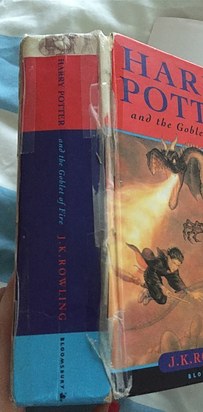
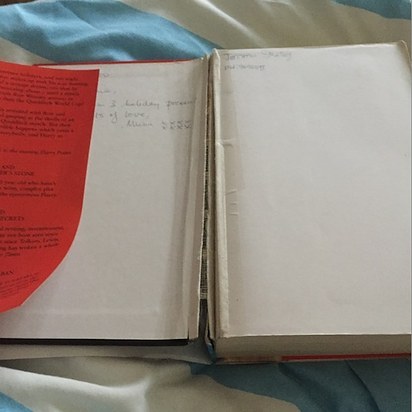







Here's The Cast Of The New "A Series Of Unfortunate Events" So Far